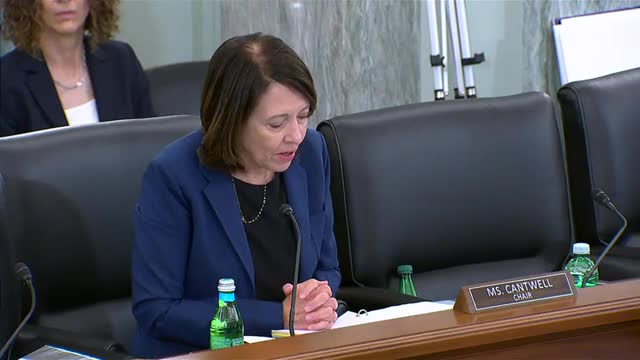AI-Driven Bots Fueling Misinformation Crisis in America
July 12, 2024 | Commerce, Science, and Transportation: Senate Committee, Standing Committees - House & Senate, Congressional Hearings Compilation

This article was created by AI summarizing key points discussed. AI makes mistakes, so for full details and context, please refer to the video of the full meeting. Please report any errors so we can fix them. Report an error »

In a recent government meeting, officials discussed the alarming rise of misinformation and disinformation campaigns fueled by artificial intelligence (AI) and bot technology. The conversation was sparked by a report from the Department of Justice revealing the dismantling of a Russian bot farm designed to create discord within the United States.
Participants highlighted the sophisticated methods employed by adversaries, including the creation of fictitious online profiles that generate misleading posts. This ecosystem of bots, which can rapidly disseminate information, poses a significant threat, particularly as AI technology enhances their capabilities. One official noted that the sheer volume of data available to these bots allows them to operate at an unprecedented scale, making it imperative to develop tools to combat their influence.
A particularly concerning example cited during the meeting involved a deep fake that falsely suggested a bomb had detonated at the Pentagon, leading to a temporary dip in the stock market. This incident underscored the potential for AI-generated misinformation to create real-world panic and economic instability.
The discussion also touched on regulatory measures, such as California's bot disclosure act, which mandates that operators of certain bots identify themselves. However, officials acknowledged the limitations of state-level regulations, particularly when dealing with foreign disinformation campaigns that do not adhere to U.S. laws. The consensus was that a coordinated federal response is necessary to effectively address these challenges, as states alone cannot achieve the global consensus needed to sanction malicious actors in the information space.
As the threat of AI-driven misinformation continues to grow, the need for robust regulatory frameworks and international cooperation becomes increasingly urgent.
Participants highlighted the sophisticated methods employed by adversaries, including the creation of fictitious online profiles that generate misleading posts. This ecosystem of bots, which can rapidly disseminate information, poses a significant threat, particularly as AI technology enhances their capabilities. One official noted that the sheer volume of data available to these bots allows them to operate at an unprecedented scale, making it imperative to develop tools to combat their influence.
A particularly concerning example cited during the meeting involved a deep fake that falsely suggested a bomb had detonated at the Pentagon, leading to a temporary dip in the stock market. This incident underscored the potential for AI-generated misinformation to create real-world panic and economic instability.
The discussion also touched on regulatory measures, such as California's bot disclosure act, which mandates that operators of certain bots identify themselves. However, officials acknowledged the limitations of state-level regulations, particularly when dealing with foreign disinformation campaigns that do not adhere to U.S. laws. The consensus was that a coordinated federal response is necessary to effectively address these challenges, as states alone cannot achieve the global consensus needed to sanction malicious actors in the information space.
As the threat of AI-driven misinformation continues to grow, the need for robust regulatory frameworks and international cooperation becomes increasingly urgent.
View full meeting
This article is based on a recent meeting—watch the full video and explore the complete transcript for deeper insights into the discussion.
View full meeting